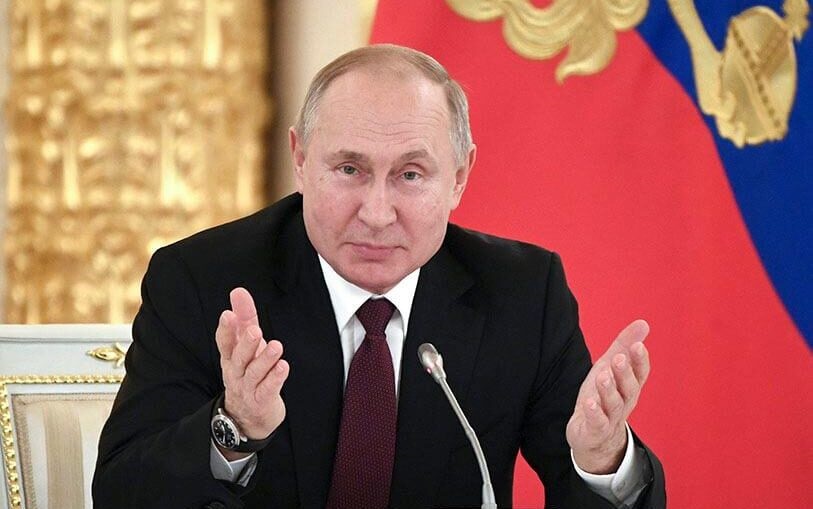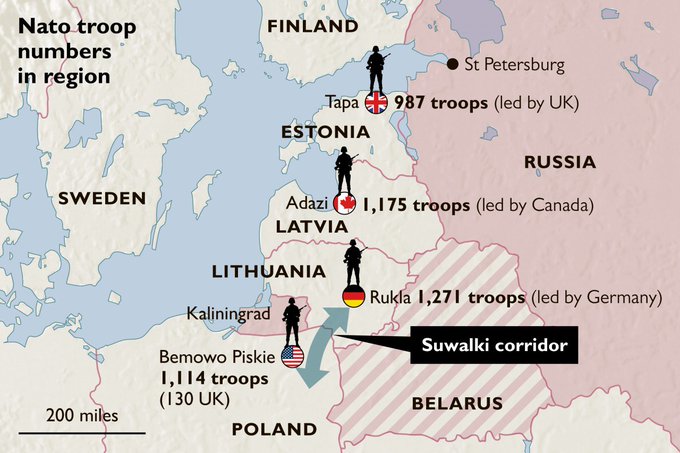EU Caves: Putin Wins, Transportation of Russian Goods to Kaliningrad Through Lithuania Will Resume
Two weeks ago, a NATO blockade of Kaliningrad, an outpost of Russia, was triggered when Lithuania blocked the transport of goods through Suwalki corridor. According to the Lithuanian justification they were following through on NATO sanctions against Russian goods. However, the escalation was very provocative toward Russia and discussions between Russia and NATO countries were tense.
Apparently, Germany was increasingly concerned the blockade was creating a scenario where Russian military were going to escort the transport of railroad goods to Kaliningrad, and that would lead to escalated military conflict with Russia. “German Chancellor Olaf Scholz is eager to avoid unnecessary provocations of Russia. He has repeatedly emphasized that he would do everything in his power to ensure that NATO does not become a party to the war between Russia and Ukraine. German soldiers are stationed in Lithuania and could become involved in a possible conflict.” {link}

The EU has now dropped the blockade and the transport of goods between Kaliningrad and Russia will resume. The EU decision was made before the NATO meeting in Madrid concluded; however, it looks like NATO postponed the announcement until after Biden left in order to save face on the reversal of position.
GERMANY – The European Commission plans to issue a clarification that will allow Russia to resume sending supplies to the exclave of Kaliningrad via Lithuania. Berlin supports the idea, but some in Vilnius are not pleased.
[…] The move will put an end to a disagreement that had not only been a significant source of tension between Russia and Brussels – but also exposed deep rifts within the EU regarding the correct approach to Moscow.
[…] The European Commission clarification expressly applies to all EU member states, but it mostly only affects the situation in Kaliningrad. According to the document, Russia will be allowed to transport sanctioned goods to Kaliningrad, but only in amounts comparable to pre-invasion deliveries.
The policy that has been adopted by the Commission largely reflects the position of the German government. Berlin had been critical of the approach taken by Lithuania.
German Chancellor Olaf Scholz is eager to avoid unnecessary provocations of Russia. He has repeatedly emphasized that he would do everything in his power to ensure that NATO does not become a party to the war between Russia and Ukraine. German soldiers are stationed in Lithuania and could become involved in a possible conflict.
The rules for the transit of goods, Scholz said at the conclusion of recent NATO summit in Madrid, “must of course be established in light of the fact that this is about shipments between two parts of Russia.” The comment made it clear that Berlin has a different interpretation of the legal situation than the government in Lithuania. (read more)






Post a Comment